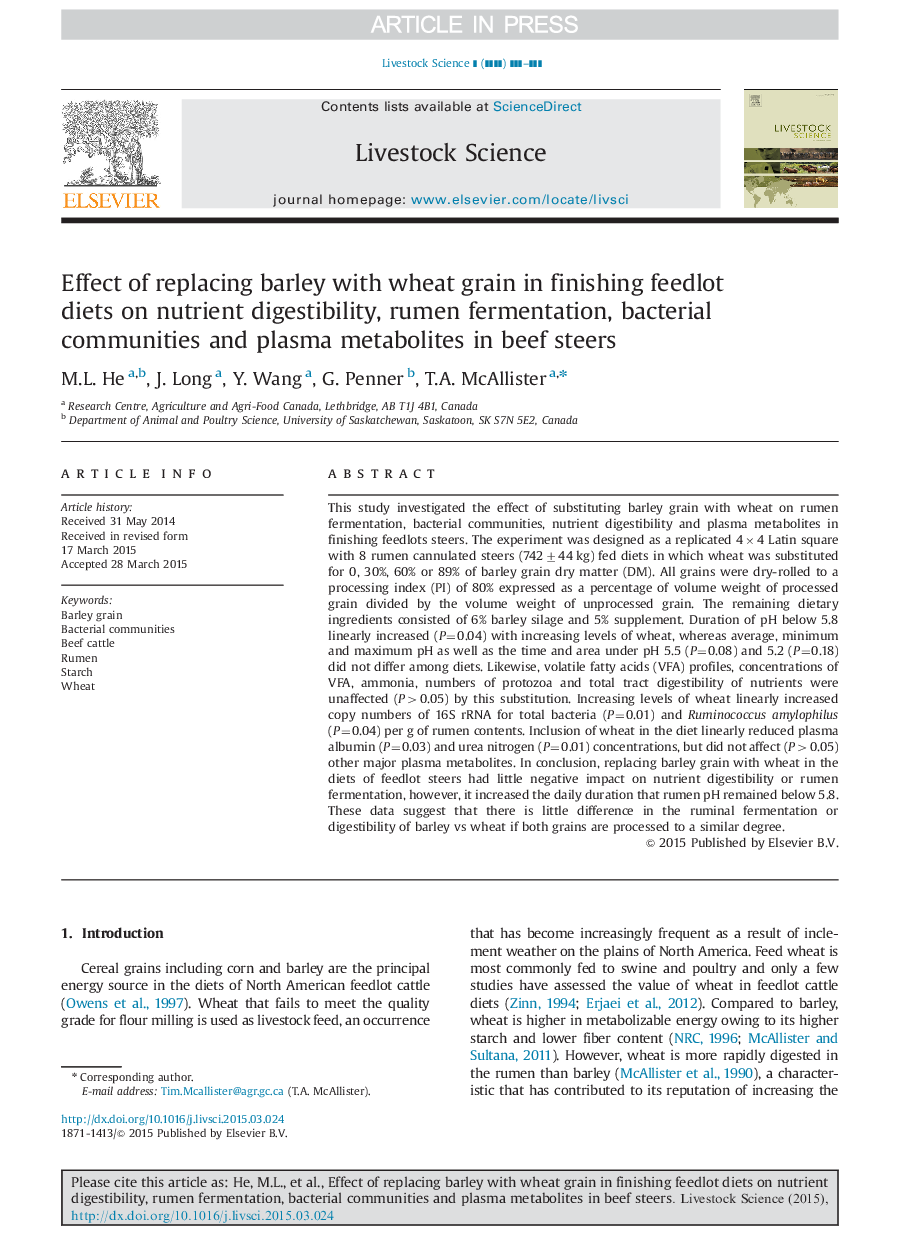| Article ID | Journal | Published Year | Pages | File Type |
|---|---|---|---|---|
| 5790030 | Livestock Science | 2015 | 7 Pages |
Abstract
This study investigated the effect of substituting barley grain with wheat on rumen fermentation, bacterial communities, nutrient digestibility and plasma metabolites in finishing feedlots steers. The experiment was designed as a replicated 4Ã4 Latin square with 8 rumen cannulated steers (742±44 kg) fed diets in which wheat was substituted for 0, 30%, 60% or 89% of barley grain dry matter (DM). All grains were dry-rolled to a processing index (PI) of 80% expressed as a percentage of volume weight of processed grain divided by the volume weight of unprocessed grain. The remaining dietary ingredients consisted of 6% barley silage and 5% supplement. Duration of pH below 5.8 linearly increased (P=0.04) with increasing levels of wheat, whereas average, minimum and maximum pH as well as the time and area under pH 5.5 (P=0.08) and 5.2 (P=0.18) did not differ among diets. Likewise, volatile fatty acids (VFA) profiles, concentrations of VFA, ammonia, numbers of protozoa and total tract digestibility of nutrients were unaffected (P>0.05) by this substitution. Increasing levels of wheat linearly increased copy numbers of 16S rRNA for total bacteria (P=0.01) and Ruminococcus amylophilus (P=0.04) per g of rumen contents. Inclusion of wheat in the diet linearly reduced plasma albumin (P=0.03) and urea nitrogen (P=0.01) concentrations, but did not affect (P>0.05) other major plasma metabolites. In conclusion, replacing barley grain with wheat in the diets of feedlot steers had little negative impact on nutrient digestibility or rumen fermentation, however, it increased the daily duration that rumen pH remained below 5.8. These data suggest that there is little difference in the ruminal fermentation or digestibility of barley vs wheat if both grains are processed to a similar degree.
Related Topics
Life Sciences
Agricultural and Biological Sciences
Animal Science and Zoology
Authors
M.L. He, J. Long, Y. Wang, G. Penner, T.A. McAllister,
